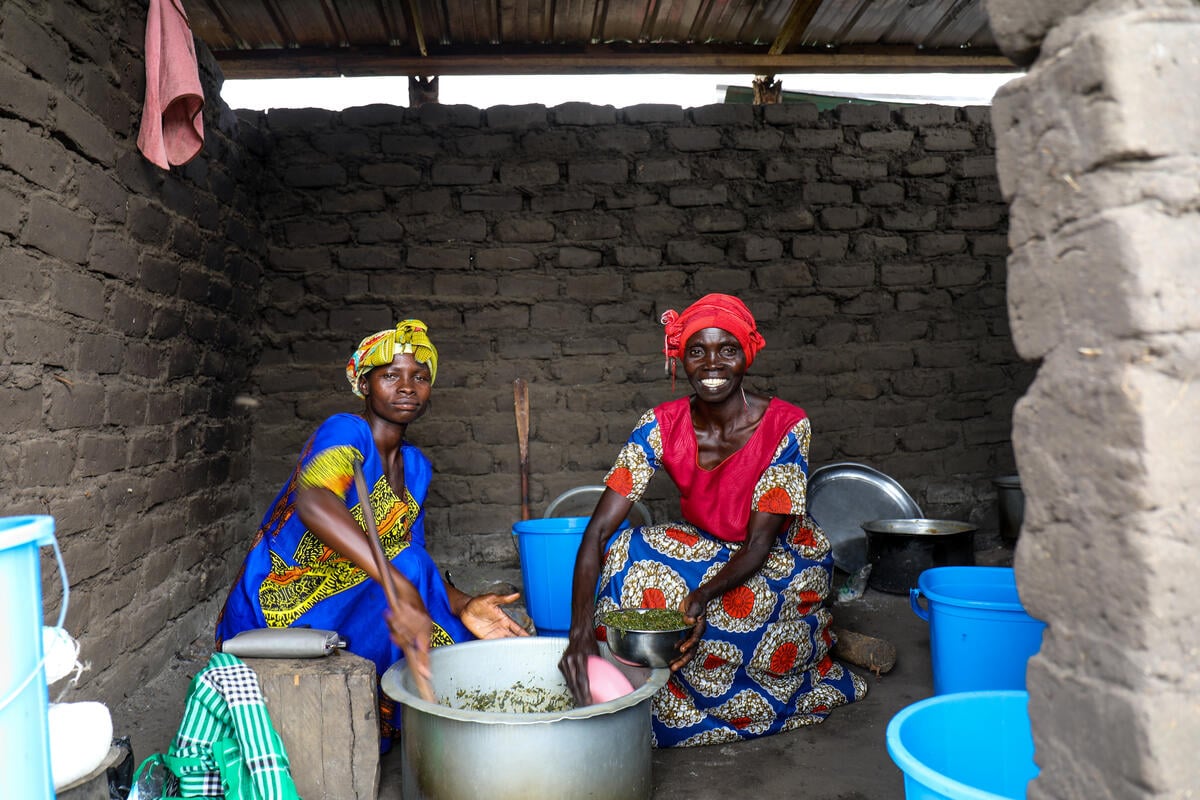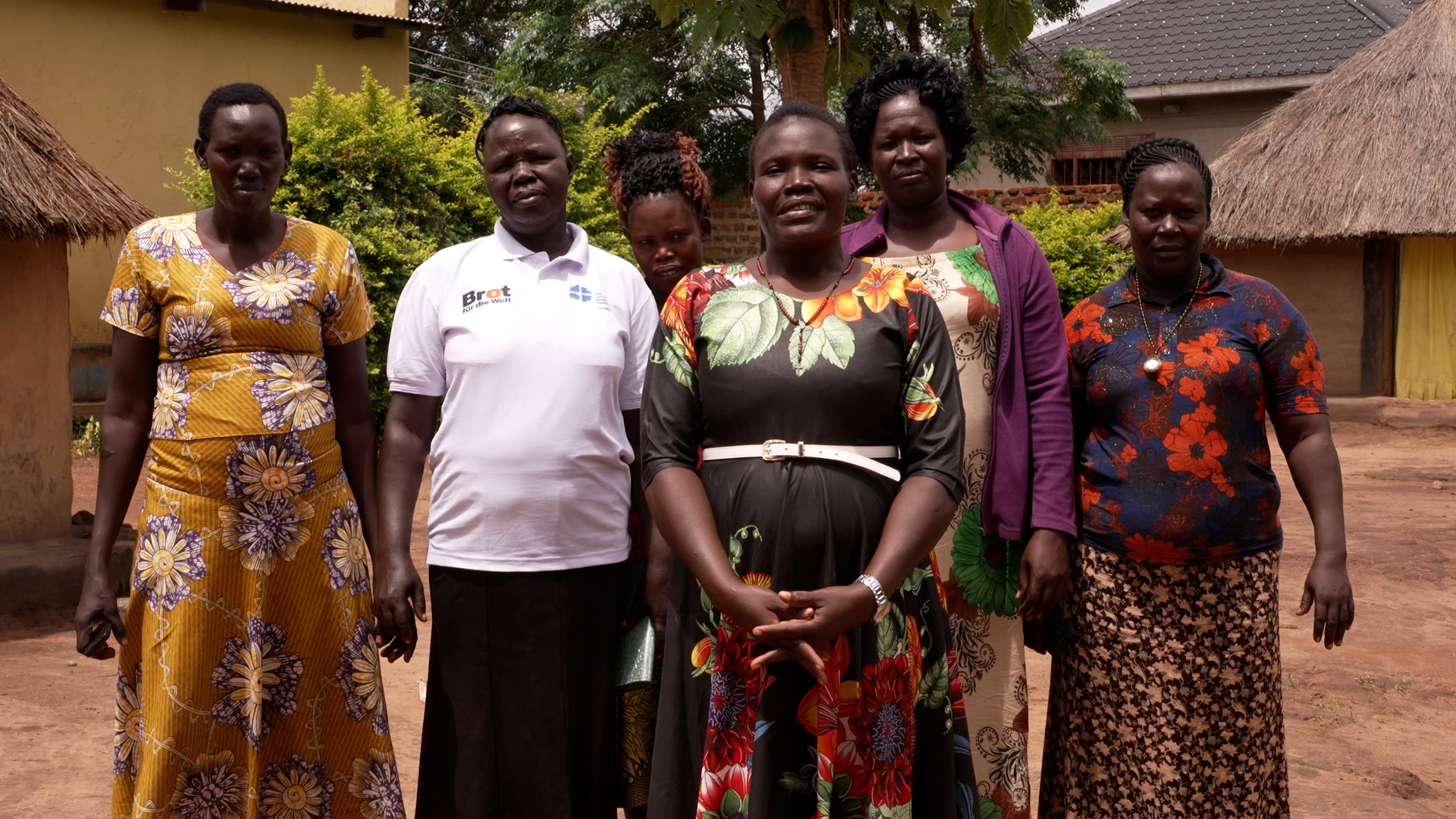The things they left behind

The things they left behind
Most fled fighting, and some witnessed terrible atrocities. Tanks flattening houses. Trucks running people over. Parents or siblings being shot. Neighbours cut down as they ran. There was seldom time to grab anything, as people scattered in all directions, some never to be seen again.
Stories of missing friends and family members abound in the refugee camps in Ethiopia's Gambella region, where UNHCR and its partners are working to make daily life less harsh. The memories of loved ones and all else that was lost are still sharp. But as people start to rebuild their lives, they find themselves missing the little things they left behind, the everyday items that hold a special place in their hearts.
Here, eight refugees from South Sudan share their thoughts on the things they miss the most.

Gatluak's home
Gatluak, 48, is a tailor who used the only money he had to buy a sewing machine, hoping one day to earn enough to return to South Sudan and rebuild his life in Malakal. But after nearly a year of civil war, his hometown remains unsafe and he is stranded with two of his children at Tierkidi refugee camp in Ethiopia. He is still hoping for news of his wife and their other three children, who vanished in the conflict.
"I miss my home, which was destroyed. Everything else in it is replaceable, but nothing can bring the house I built back. I used to work for the government and sew at night. I like this job because I am perfect at it. When I mend clothes and the owners pick them up, they look great and they are very happy, which makes me happy. Here, there are very few customers; in South Sudan, I had many. Only if the top politicians make good deals to stop the killing can they mend my broken country. When someone brings broken clothes to my sewing table, I can fix it. The same goes for South Sudan. These problems need to be brought to a round table and fixed."

Nyachuol's toys
Nyachuol, a 14-year-old from Mathiang in South Sudan's Unity State, fled to Ethiopia in May without her parents. She has since been reunited with her mother, but arrived too late to register for school. Now, she says, the game of playing house that she enjoyed back home is a grim reality in a sprawling camp of over 48,000 people.
"I miss my kitchen toys in South Sudan. I used to love playing with them. The food is not the same here. It doesn't taste good, but it's all we have. We just take plants from the garden and cook them. When we made the trip, I was so hungry, and there were dangerous animals. I didn't meet any other adults for a whole day, and then I bumped into some men who showed me elephant footprints and told me that it was dangerous to follow them so I went with them instead."

Nyantay's bed
When fighting broke out in her village in South Sudan, Nyantay, who is 40-something and blind, stumbled through the forest alone. She bumped into trees and fell so often that she began to wish that the lions and hyenas she heard would come and eat her.
"I miss my bed the most. My bed at home was so comfortable, not like here. Because I don't see during the day, at night I dream of the countryside and see heaven, with very good people in it. I miss seeing the sunrise. I used to get up early to watch this. Eyes are very important. You can see where you're going, you can see danger and distance, but now it's all gone. I can't see a future for me. Here, I just sit in one place feeling sad."

Gatwech's shoes
Gatwech, 15, lives in Ethiopia's Tierkidi refugee camp and hopes to study to become a politician so that he can 'do good' in South Sudan. He is determined to bring power to the people in the form of roads, electricity and hospitals, instead of a war that turns everything bad.
"I miss my shoes and clothes. It makes me so sad that when I go to school I don't have anything to wear. Every day I wear the same things that don't fit, and I'm always barefoot. I had to walk all the way from South Sudan without shoes. I used to have these black shoes with white soles, and when I wore them I felt so powerful – like people would see me and respect me, like I had everything. When I go to the forest to collect firewood here, I cut my feet and I just think of those shoes back home that would stop me hurting now."

Gatdet's mother's money
Gatdet, just 11 years old, was forced to run from his home in South Sudan and hide in a river that ran red with blood as gunmen picked off his classmates and relatives and others drowned. Now, after an untended fire engulfed his family's tent at Kule refugee camp in Ethiopia, the only thing he owns is a metal plane he made out of empty oil cans.
"At the time, I was just worried about my brothers, that they would be all burned. I didn't get burned because my neighbours came and dragged me out, but all my clothes were burned, the food, the cooking oil, the mattress, sheets, blankets – all gone. I miss the money that my mother made from her business making tea and bread the most. I am sad about everything we lost. I was going to school, but all my books were burnt. I like planes, as they move from place to place. I would like to go to many places, like America. I hope to go to South Sudan, too, because that is my country, but we left because the men with guns came."

Nyaboth's skirt
Nine-year-old Nyaboth wears oversized rags in Pugnido refugee camp, Ethiopia, where she and her twin sister sought refuge after witnessing mass killings in South Sudan. She would like to become a teacher one day, to help people live good lives.
"I want to have money to buy clothes, so that people will see me looking nice. I miss my black-and-white skirt most. I used to wear it to church and sometimes to school, and I would feel so happy. One day at school, I heard the war, the guns that sounded like 'tow tow tow'. The soldiers came and fought the pupils and I hid there for three days. My parents came and collected me and we went home for two days. It was so nice and quiet and we didn't think it would get noisy again. When it did, there was no time to think about clothes."

Koang's laptop
Koang, 21, was a medical student in South Sudan, but had to run with just the clothes on his back when the brutal conflict came to his city, Malakal. He cannot continue his university education in Ethiopia's Kule refugee camp, so he stays busy tending a vegetable garden and helping to build a school so that he and others can get a proper education.
"I miss my laptop the most. Everything that I need is in that computer. I use it for communicating with people, emailing, and it meant a lot to me. I had all my documents in there, all my private things, my secrets and my communication with friends."
Nyaruot's bread
Nyaruot, 13, remembers a time when food was plentiful back home in South Sudan. Now she takes her one-year-old sister, Susanna, to a feeding centre for malnourished children in Ethiopia's Leitchuor refugee camp, where over 45,000 South Sudanese refugees are living on a floodplain. Among children below the age of five, almost one in 10 is malnourished – often after spending days or weeks without food or shelter while fleeing violence at home. While the girls are at the feeding centre, their mother is busy trying to find some onions or stock to make their daily meal of wheat more palatable – but Nyaruot dreams of eating tasty bread from back home.
"The baby can't eat what big people eat, so she cries from hunger. When I see Susanna crying, I feel so lost and remember our home in South Sudan, where we could give her anything she wanted. We were much bigger there. I was massive. I don't want to be thin or fat, I just want to be in the middle. It was so hard coming here. Dad wasn't there and there was no food, so we just drank puddle water. The colour was horrible. We drained it through our skirts to get some of the dirt out. It tasted horrid, but there was nothing else, and it made my mother cry seeing us drink it. We'd feel dizzy afterwards, but that might be because of the hunger. My heart longs for bread, and going to school every day, because when Susanna is sick I have to care for her."








